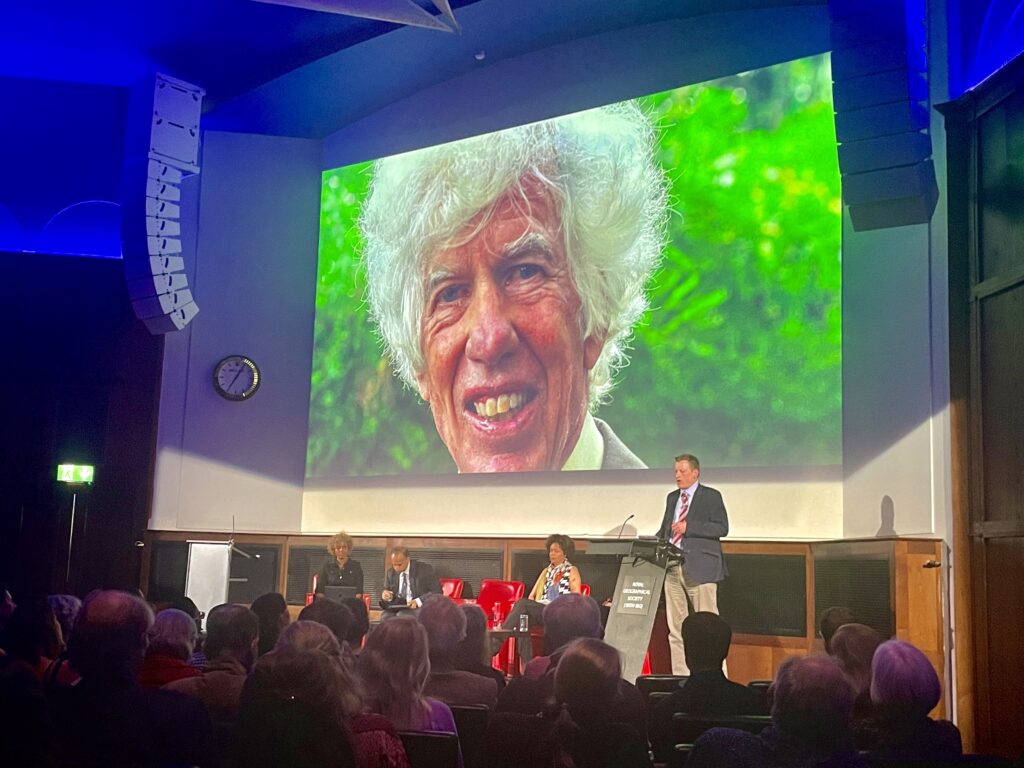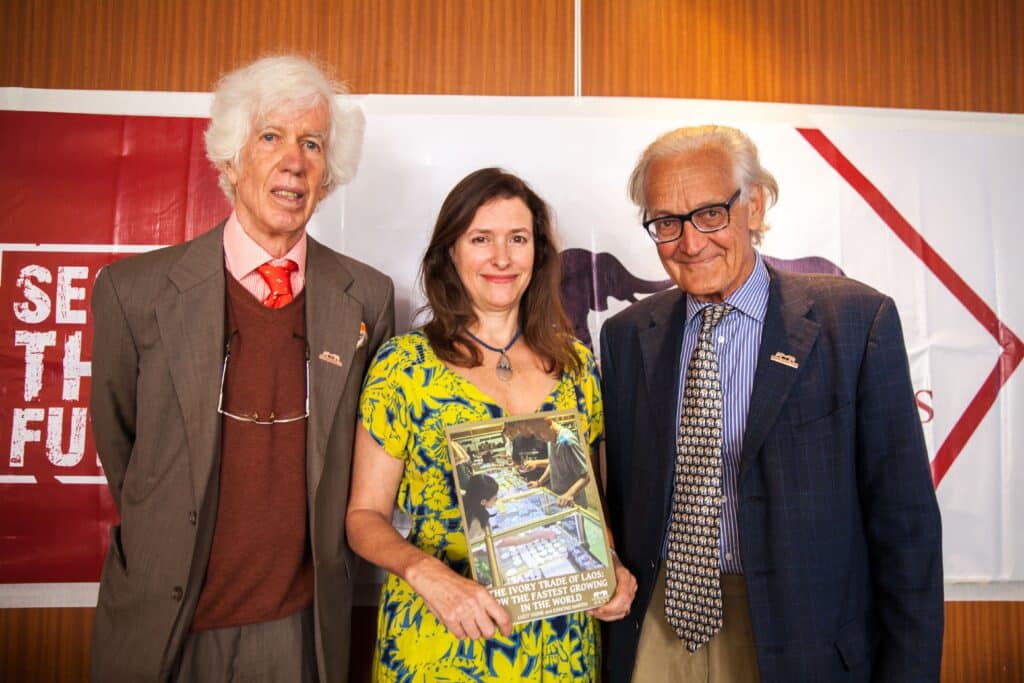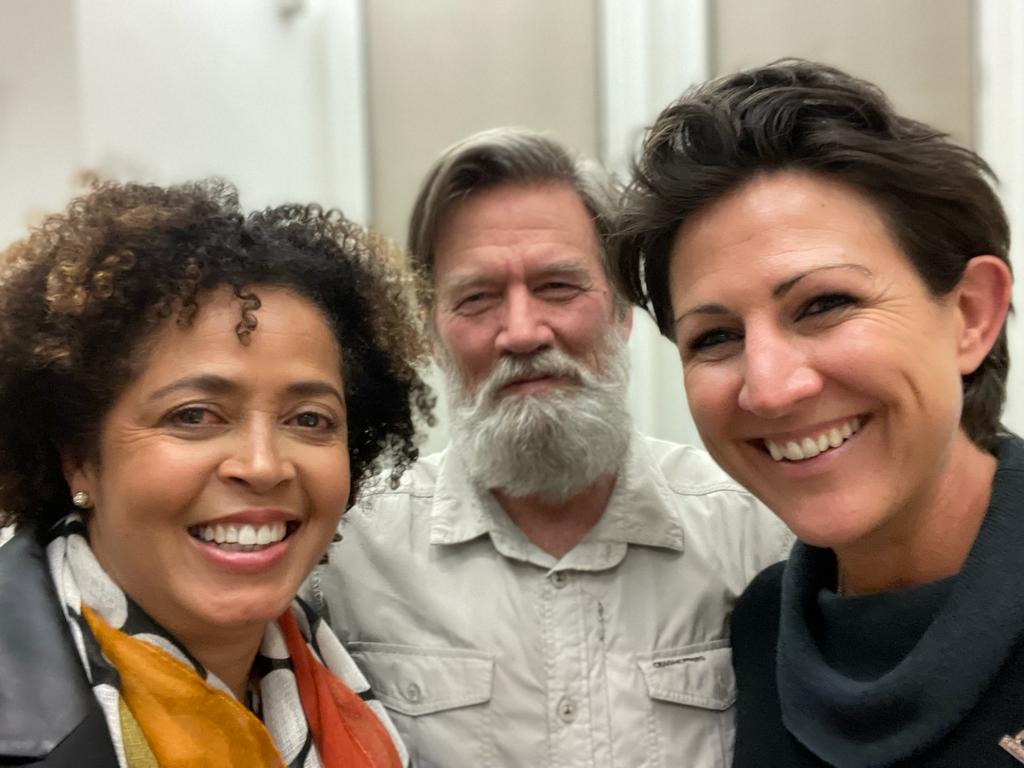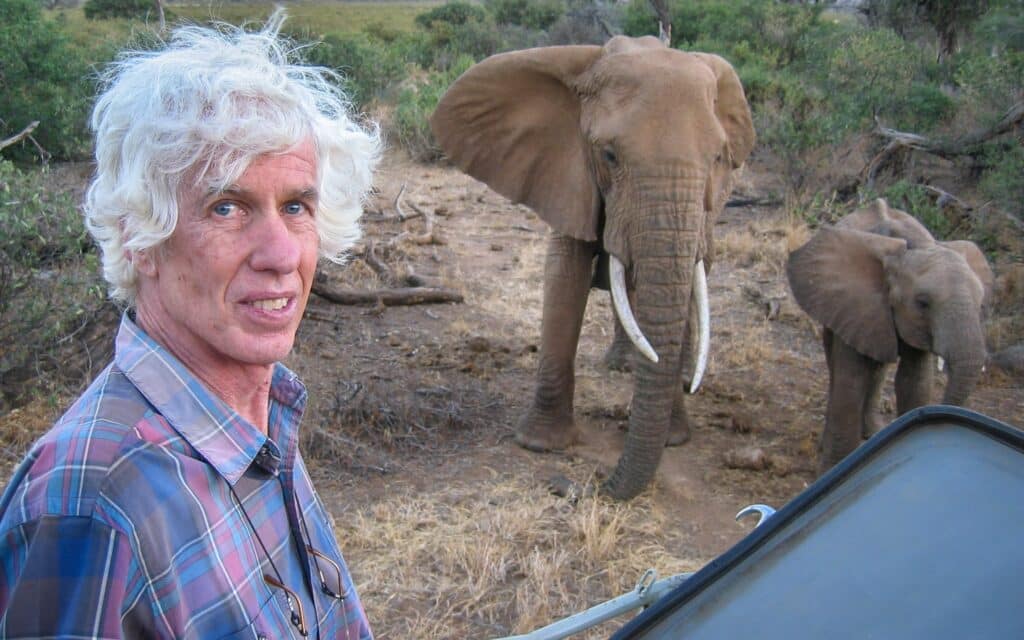Esmond Bradley Martin was an extraordinary person who played a pivotal role in shedding light on the illegal trade of rhino horn and elephant ivory. A close friend of Save the Elephants and a grantee of the Elephant Crisis Fund (ECF), Esmond’s life was celebrated and his legacy honored at the inaugural Esmond B. Martin Royal Geographical Society Prize award ceremony in London. During the event, Dr. Chris Thouless, the Director of the ECF, spoke movingly about Esmond’s research, impact, and lasting contributions. and then joined chair Gillian Burke and co-panellists Professor Bhaskar Vira and Dr. Lucy Vigne, to explore Esmond’s conviction that data is essential to wildlife protection.
Esmond, an American geographer and conservationist, conducted groundbreaking research on the dhow trade in the Indian Ocean in the 1970s. His investigations revealed the extensive smuggling of rhino horn from Africa to North Yemen, where it was used to create traditional dagger handles known as jambiyas. He eventually settled in Kenya, dedicating the remainder of his life to investigating the illegal markets for rhino horn and elephant ivory in Asia. Working alongside research partners Dr. Lucy Vigne and Dr. Daniel Stiles, Esmond tirelessly pursued his mission despite considerable expense and personal risk.
From the late 1990s onward, Esmond collaborated closely with Dr. Iain Douglas-Hamilton and Save the Elephants. Beginning in 2014, the Elephant Crisis Fund financed a series of investigative trips conducted by Esmond and Lucy Vigne to China, Hong Kong, Vietnam, Laos, and Myanmar. Their meticulous research into the presence, quantity, location, and prices of ivory items for sale generated influential reports that laid bare the extent of the trade.
Governments and decision-makers could no longer ignore the evidence presented in these reports, which no doubt played a role in the domestic trade bans implemented in China in December 2017 and Hong Kong in December 2021. These reports also triggered legislative reviews and invigorated law enforcement efforts across various Asian countries.
Unfortunately, Esmond did not witness the decline in poaching pressure that resulted from his groundbreaking work, as he was tragically murdered in Nairobi in February 2018. Esmond’s unwavering optimism, energy, curiosity, and determination to effect positive change inspires the prize that was established in his honor. The Esmond B Martin Royal Geographic Society Award recognizes exceptional achievements in geographical research, particularly in the fields of wildlife conservation and environmental studies.
In April, the first award was presented to Dr. Paula Kahumbu, a Kenyan conservationist who serves as the CEO of WildlifeDirect. For years, Paula has been at the forefront of raising awareness about wildlife conservation issues in Kenya and Africa. The ECF funded WildlifeDirect’s impactful courtroom monitoring program in Kenya from 2014 to 2021, which helped bring attention to wildlife crime, strengthen wildlife laws, improve legal proceedings, increase conviction rates, impose stricter penalties, and garner political commitment. The program also highlighted persistent challenges such as corruption, excessively lengthy trials in ivory cases, and the lack of convictions for large-scale seizures brought to trial over the past decade. Paula’s current focus is on educating and empowering a new generation of African wildlife conservationists while raising awareness and support for wildlife and conservation throughout the continent. The funds from the Esmond B. Martin Prize will be utilized to advance these goals, providing underrepresented children in Kenya with access to conservation, science, and nature and fostering future leaders in wildlife conservation.
The ECF remains dedicated to carrying forward Esmond’s vision of ending the illegal wildlife trade. Despite a recent decline in poaching and ivory demand, the threat persists, necessitating ongoing efforts to create an enforcement environment that leaves no room for wildlife criminals to operate. The ECF continues to fund anti-trafficking projects across Africa and Asia, supporting investigations, capacity building, and market surveys to maintain the momentum generated by Esmond and other leaders in the field. Your generous donations allow this vital work to continue.
The deadline for nominations for the 2024 Esmond B. Martin Royal Geographical Society Prize is 15th December 2023. Find out more here.
Related stories:
Remembering Esmond Bradley Marin – February 2018
Honouring and Remembering a Fallen Colleague – May 2023



